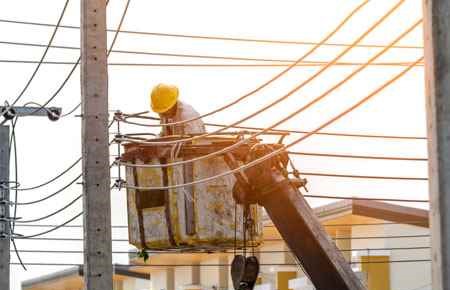
Lineworker Major
A program that prepares individuals to apply technical knowledge and skills to install, operate, maintain and repair local, long-distance, and rural electric power cables and communication lines; erect and construct pole and tower lines; and install underground lines and cables.
Includes instruction in cable installation and repair, fiber-optic technology, trenching, mobile equipment and crane operation, high-voltage installations, maintenance and inspection, safety, remote communications, and applicable codes and standards.
What can you do with a major/degree in Lineworker Studies?
Most companies require line installers and repairers to have a high school diploma or equivalent. Employers prefer candidates with basic knowledge of algebra and trigonometry. In addition, technical knowledge of electricity or electronics obtained through military service, vocational programs, or community colleges can also be helpful.
Electrical line installers and repairers often must complete apprenticeships or other employer training programs. These programs, which can last up to 3 years, combine on-the-job training with technical instruction and are sometimes administered jointly by the employer and the union representing the workers.
After three to four years of working, qualified line workers reach the journey level. A journey-level line worker is no longer considered an apprentice and can perform most tasks without supervision. Journey-level line workers also may qualify for positions at other companies. Workers with many years of experience may become first-line supervisors or trainers.
Trade Associations and Professional Organizations in Lineworker Studies
Professional associations are groups of professionals dedicated to topics in specific fields. Professional associations provide a wealth of online resources, some of which are geared specifically towards students. These organizations typically also host conferences and events, providing great opportunities for learning and networking across your field of interest.
Publications/Magazines Lineworker Studies